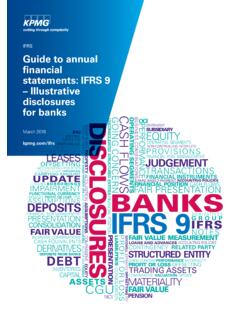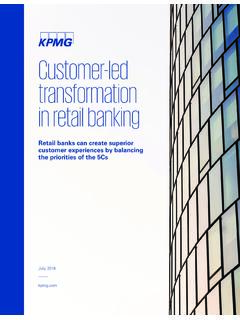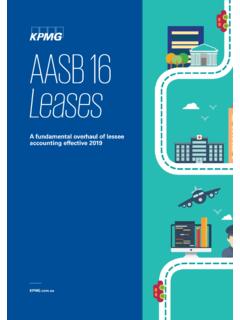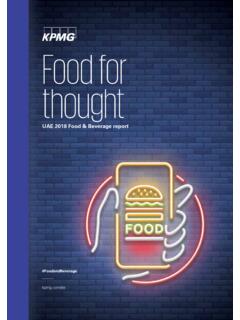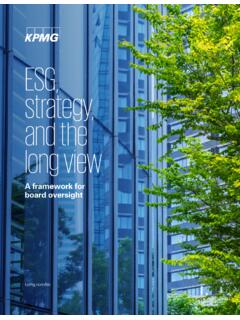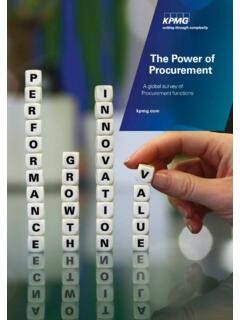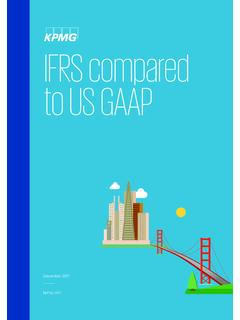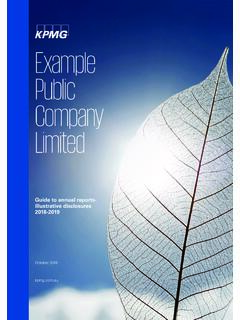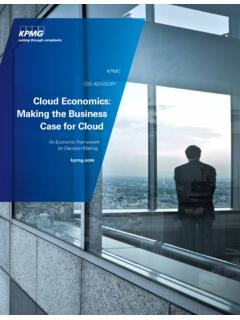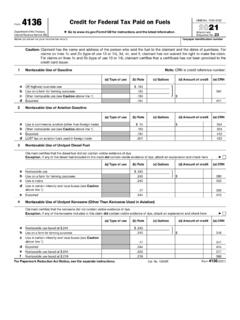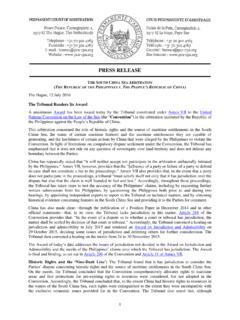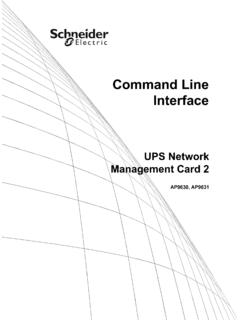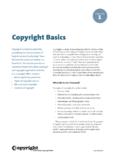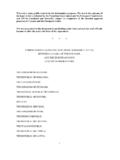Transcription of Contracts and VAT
1 Complex transactions typically require well drafted Contracts . But how close do you look at the tax clauses of your Contracts or written agreements? A poorly drafted contract can often result in unintended consequences when it comes to Value Added Tax (VAT) and the parties responsibilities. VAT has four fundamental areas that impact contract terms: Nature of supply ( goods, services, tangible property, real property, intellectual property) Consideration paid ( cash or in kind payments) Place of supply ( domestic or foreign transaction) Time of supply ( when the VAT is payable)A contract should address each of these fundamental areas to avoid ambiguity and limit risk of VAT liability.
2 No business person wants to face the costly mistake of being unable to collect the VAT from their customer or having to absorb unexpected VAT costs in their bottom line. Below are some common areas where tax ambiguity often inclusive pricingThe Value Added Tax Act, 2014 ( the VAT Act ) states that the price charged by a person registered for VAT is deemed to include the tax whether or not the vendor has included the tax in their price . Thus where formal agreements are silent on whether VAT will be added to a contract price, the law provides that it is inclusive. Only where the vendor carries on a marketing campaign can they state a VAT- exclusive price provided they also include a statement that VAT will be added to the area where problems most often arise is where a vendor assumes a particular transaction is VAT exempt or zero-rated.
3 The vendor may enter an agreement that states that the price is inclusive of VAT if applicable . Down the road, an amendment to the VAT Act may occur which then causes the transaction to be subject to the standard rate of tax. Normally, the vendor would simply start adding VAT to their invoices in this case. However, because the vendor has already stated in their agreement that the pricing includes VAT, the customer has actually received a tax windfall since they become entitled to recover the VAT inclusive in their propertyVAT applies to most real property transactions with limited exceptions. Uncertainty can exist where the vendor is a VAT registrant and enters into an agreement of purchase and sale for the transfer of real property with a stated price.
4 As noted above, the VAT Act states that the price paid for a taxable supply is deemed to be inclusive of VAT. In the case of a real property transaction, because VAT is not paid to the vendor but to the VAT Comptroller directly by the purchaser s agent (typically their lawyer), the opportunity exists for disagreement over the actual proceeds the purchaser expects to pay since the law presumes the price to be VAT inclusive. However, where real property is sold by a non-registrant, the vendor has no obligation to collect or state that the price is VAT-inclusive. The obligation to collect the tax in this case simply falls upon the Comptroller and is paid by the purchaser s agent at the time of registration.
5 In this case VAT becomes a tax extra disbursement upon , when dealing with real property transactions, it is important that the Agreement of Purchase and Sale and closing documents clearly address the agreed upon price and the assumptions concerning the amount and payment of VAT. Caution should be taken to avoid using terms that may contradict the VAT definitions or statutory requirements. When ambiguity exists and the Courts Contracts and VATA ugust 2017 2017 KPMG Advisory Services Ltd., a Bahamian limited company and a member firm of the KPMG network of independent member firms affiliated with KPMG International Cooperative ( KPMG International ), a Swiss entity. All rights reserved.
6 Requires an engineer or architect to certify the value of the work completed and the value of the materials delivered to the site. The developer is then obliged by the contract to pay the certified amount within a certain period of time after the certificate has been issued. Under the circumstances the application for payment itself is not an invoice for VAT purposes since it is only a request for the payment certificate. Accordingly, the VAT liability occurs on the date determined under the contract terms for payment or when the contractor issues their invoice whichever is cost-plus Contracts , the overall contract price is based on the underlying net costs plus a builder s fee or margin.
7 It is important in these arrangements that both the contractor and purchaser clearly address VAT on the costs included in the contract. For example, if the materials are being brought in under a VAT deferral arrangement (such as under the Industries Encouragement Act), the contract price in total will still be subject to VAT unless the contractor is importing the materials as agent of the developer. When the contractor issues their invoice, they need to be clear that the costs are exclusive of VAT so that when VAT is applied to the invoice no double taxation Contracts by their nature are complex. Because VAT can create significant cash flow issues and reflects of the contract price, it is important that all terms and conditions anticipate possible VAT obligations for both every contract involves money.
8 Sometimes two parties want to exchange goods or services with another party in trade. Trading one good or service (supply) for another is referred to as a barter transaction. When any two parties agree to a reciprocal exchange of goods or services and carry out that exchange usually without using money, they ve entered into a barter agreement. When the two parties are dealing at arm s length it is a fundamental principle that each person considers that the value they receive is equal to the value of the good or service they have given up in entering into Contracts where all or part of the consideration is an offset of goods or services, it is important that VAT is addressed as part of the agreement.
9 Even though you may have no cash involved or only a partial cash payment, you are still agreeing to provide a good or service in exchange for consideration. Consideration by law is the inducement to a contract and can be anything of value whether cash, goods or services. The VAT liability on a supply of taxable goods or services is determined by calculating the total consideration for the taxable supply. The VAT Act states that consideration is defined to be money or money s worth paid or payable for the supply. cannot discern whether the purchase price was intended to be VAT inclusive or VAT exclusive , they must turn to the VAT Act itself to draw of a businessThe disposition of a taxable activity as a going concern (including such part of the activity capable of separate operation) is treated as a taxable supply of goods.
10 Where a taxable activity is supplied by one registrant to another registrant, the VAT Act provides that the supply will be zero-rated. In other words, the sale of the business is taxable but the rate of tax is zero percent (0%). To qualify for this zero-rating treatment there are very specific criteria that must be met including: The business cannot be dormant and must be operational prior to the sale The transfer of assets must constitute its entire taxable activityWhen the agreements are drafted for these business sales, the purchaser may decide to split some of the assets between two separate entities for estate planning or creditor protection reasons. For example, a holding company will own the building and an operating company own the equipment.
